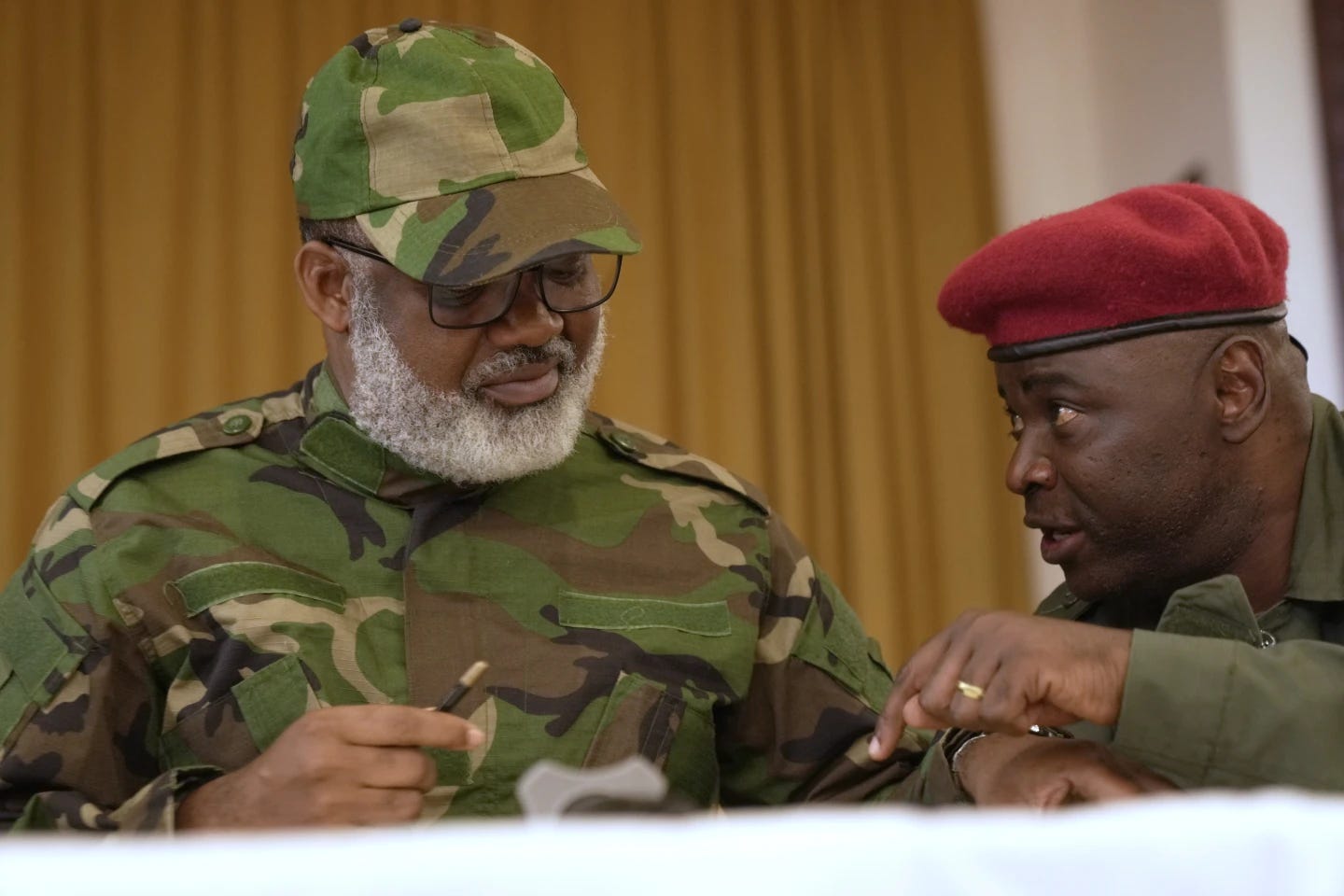M23 Rebel Group Shifts Identity as New Leader Emerges Amid Advancing Forces in Eastern Congo
Corneille Nangaa, a former election official, takes leadership in a move to position the M23 as a Congolese nationalist group, despite ongoing support from Rwanda.
KAMPALA, Uganda (AP) — As the Rwanda-backed M23 rebel group advanced and captured Goma, the largest city in eastern Congo, a surprising figure stepped into the spotlight to lead the group. Corneille Nangaa, previously a prominent figure in Congolese politics, emerged as the new leader, distancing himself from the group's longtime military leader, Sultani Makenga. Unlike Makenga, Nangaa is not of Tutsi ethnicity, signaling a strategic shift toward a more inclusive, Congolese identity for M23.
In military fatigues, Nangaa addressed reporters at Goma’s Serena Hotel, emphasizing his intentions to take the fight all the way to Kinshasa, the Congolese capital located over 1,000 miles away. This marked a notable shift for M23, which had been known for its Tutsi-dominated leadership, and pointed to the group’s evolving goal of presenting itself as a broader Congolese nationalist force, even as it continues to receive military support from neighboring Rwanda.
From Election Chief to Rebel Leader
Nangaa, a former head of Congo's electoral body, oversaw the highly contested 2018 presidential election, which resulted in the election of President Félix Tshisekedi. His controversial role in the election led to sanctions from the U.S. in 2019. After a fallout with Congolese authorities over issues, including a mining concession, Nangaa went into exile in Kenya. In 2023, he joined the Congo River Alliance, a political-military coalition made up of opposition groups, where he became one of the top figures.
Nangaa’s grievances with the Tshisekedi government are believed to stem from both personal and political conflicts, including disputes over mining and his frustration with the government’s refusal to push for the removal of his U.S. sanctions, according to Christian Moleka, a political scientist at Dypol, a Congolese think tank. "His perception of mistreatment by the authorities drove him toward radicalization," Moleka noted.
A Strategic Alliance
In 2023, Nangaa’s Congo River Alliance merged with M23, with Nangaa at the helm. This collaboration marked a turning point, as M23—once a Tutsi-led militia—began to present a national agenda focused on the broader issue of autonomy for eastern Congo.
The group’s shift in focus aims to foster a national dialogue about the region's longstanding neglect, while gaining as much territory as possible to force the Congolese government into negotiations. Angelo Izama, an analyst with Uganda-based think tank Fanaka Kwawote, described this strategy as a smart move, suggesting that forcing political negotiations is the "only path out of this crisis."
M23’s New Political Strategy
Unlike the M23 of 2012, which focused primarily on Tutsi integration into the Congolese army, the group now presents a more complex agenda, according to the Crisis Group think tank. With Nangaa’s Congo River Alliance providing a political umbrella, M23 has attracted more allies, strengthening its position both within Congo and across the Great Lakes region.
Experts suggest that Rwanda’s support for M23 now serves a dual purpose: creating a powerful Congolese front to negotiate with the Congolese state while also asserting its influence over North Kivu province. Despite the group's efforts to downplay Rwanda’s involvement, United Nations experts estimate that about 4,000 Rwandan troops are backing M23 rebels in North Kivu.
M23’s Resurgence and a New Face
The M23 group was initially defeated after taking Goma in 2012 but regrouped following a failed amnesty and continued its insurgency from Uganda and Rwanda. In 2021, the group reemerged as the most formidable force among over 100 armed factions in eastern Congo. The region, rich in minerals, is considered critical to global technology, with an estimated $24 trillion in mineral deposits.
Nangaa's appointment as M23’s face, particularly given his origins in the Haut-Uele province and his non-Tutsi background, represents a conscious effort to broaden the group’s appeal. His leadership is seen as an attempt to shake off the perception of M23 as merely a Rwanda-backed force protecting Tutsi minorities, according to political analyst Moleka.
A Challenging Future for Goma and Beyond
Nangaa and his rebel group are not just aiming for military victories but also intend to establish a civilian administration in Goma, a city of over two million people, many of whom are now displaced. At a recent press conference, Nangaa outlined plans to return displaced citizens to their homes and criticized the Congolese government for its failure to address the needs of the eastern region.
“We are here in Goma to stay as Congolese,” Nangaa declared. “We will continue the march for liberation all the way to Kinshasa.” With the support of his new political allies and a revised strategy, M23 is poised to challenge both Congolese authorities and international efforts to stabilize the region.


